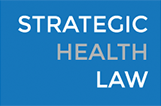Top of Mind Tuesday: Congress Passes Bill with Major Implications for Medicare Plans
The Senate and House of Representatives voted to pass the Inflation Reduction Act (IRA), a major budget bill impacting environmental, tax, and health policy, which is expected to be signed into law shortly. The bill contains numerous changes relevant to Medicare and the ACA, but most notably for Medicare prescription drug plans, the IRA will allow Medicare to negotiate prescription drug prices for a limited number of medications.
Top of Mind Tuesday: New Third-Party Marketing Requirements for Medicare Advantage
CMS published new marketing and communications requirements, which went into effect June 28, 2022, impacting Medicare Advantage (MA) organizations. The new requirements are intended to address beneficiary complaints associated with third-party marketing organizations (TPMOs), as well as feedback from beneficiary advocates and stakeholders concerned about the marketing practices of TPMOs that sell multiple MA and Part D products.
Medicare Advantage Snapshot – Going Strong in 2022
In 2005, the year I started focusing my practice on Medicare plans, fewer than 14% of Medicare beneficiaries, or roughly 6 million people, were enrolled in Medicare managed care products. By the end of 2021, more than 26 million people, or 42% of Medicare beneficiaries, were in Medicare Advantage, and more than 46% of Medicare spending flows through this program. Basically, in the last 17 years, Medicare Advantage transitioned from being a niche managed care option towards becoming the standard way that Americans receive their Medicare benefits.
CMS Proposes Regulatory Changes to Medicare Advantage and Part D
If you, like us here at SHL, have been waiting for insights into the Biden Administration’s vision and agenda for the Medicare Advantage and Part D programs, the wait is over. On Thursday, January 6, CMS proposed Contract Year 2023 Policy and Technical Changes to the Medicare Advantage and Medicare Prescription Drug Benefit Programs, [CMS-4192-P]. Comments on the proposed rule are due March 7, 2022. We encourage health care companies to comment individually on their highest priority issues in addition to contributing to comment letters submitted by industry associations.
Strategic Health Law’s Top of Mind Tuesday: Changes in Gift Card Guidance
Guidance from the Office of Inspector General (OIG) and Centers for Medicare & Medicaid Services (CMS) imposes restrictions that go beyond the long-standing prohibition on Medicare Advantage (MA) organizations offering cash or cash equivalents as reward items or nominal gifts.
Strategic Health Law Conversation With Provider Trust About Changes to the Anti-Kickback Statute
It is hard to believe it has been nine months since HHS-OIG published the long-awaited final rule implementing changes to the Anti-Kickback Statute (AKS) safe harbors. The updates provide increased flexibility and protection under the AKS and encourage payors, providers, and other healthcare entities to collaborate to provide value-based care.
Top of Mind Tuesday: CMS Issues 2020 Part C and Part D Program Audit and Enforcement Report
Last Friday the Centers for Medicare and Medicaid Services (CMS) released the 2020 Part C and Part D Program Audit and Enforcement Report. The purpose of program audits is to evaluate Medicare Advantage (MA) and Part D plan sponsors’ compliance with core program requirements, including ensuring that sponsors provide beneficiaries with access to medically necessary services and medications. The annual program audit and enforcement report provides background information on the program audit process, a summary of the 2020 program audits, as well as enforcement actions taken by CMS in the last year.
Top of Mind Tuesday: Who’s the New CMS Administrator?
The answer to that question is not as straightforward as you might think. Chiquita Brooks-Lasure is the nominee to serve as the next CMS Administrator, but she has yet to assume the role. The previous CMS Administrator, Seema Verna, resigned effective January 20, 2021, as is customary in an administration transition. Elizabeth Richter then became Acting Administrator of CMS, after having served at CMS since 1990, and continues in that interim role due to the holdup of the confirmation of President Biden’s appointee.
Top of Mind Tuesday: New Guidance for Implementing Parity Requirements for Mental and Behavioral Health
One theme that bubbled to the surface of cultural conversations around healthcare over the last year is the notion that “mental health is health.” Whether you’re a parent of children who struggled with isolation during a year of virtual school, a person who relied on in-person support for mental and behavioral health issues before the pandemic, or a healthcare professional trying to meet the needs of patients who are in increasing need of services for mental illness and substance use disorders, you know that COVID-19 has had an enormous, negative impact on mental health.
Top of Mind Tuesday: The State of Play in Telehealth
This week marks the anniversary of the World Health Organization declaring COVID-19 to be a pandemic, the United States entering a state of national emergency, and the Centers for Disease Control and Prevention (CDC) issuing the first set of restrictions in the United States. As we acknowledge these dates, and ruefully reflect on the emails from colleagues and signs hanging on the doors of our favorite restaurants saying, “Stay safe, we’ll see you in two weeks,” it is impossible not to reflect on how much our lives have changed in the last year, and to evaluate how many of those changes will be with us for the long term. We may disagree on when restaurants should reopen and kids should go back to school, but one thing on which patients, providers, plans, and lawmakers seem to agree is that telehealth is not going away.











